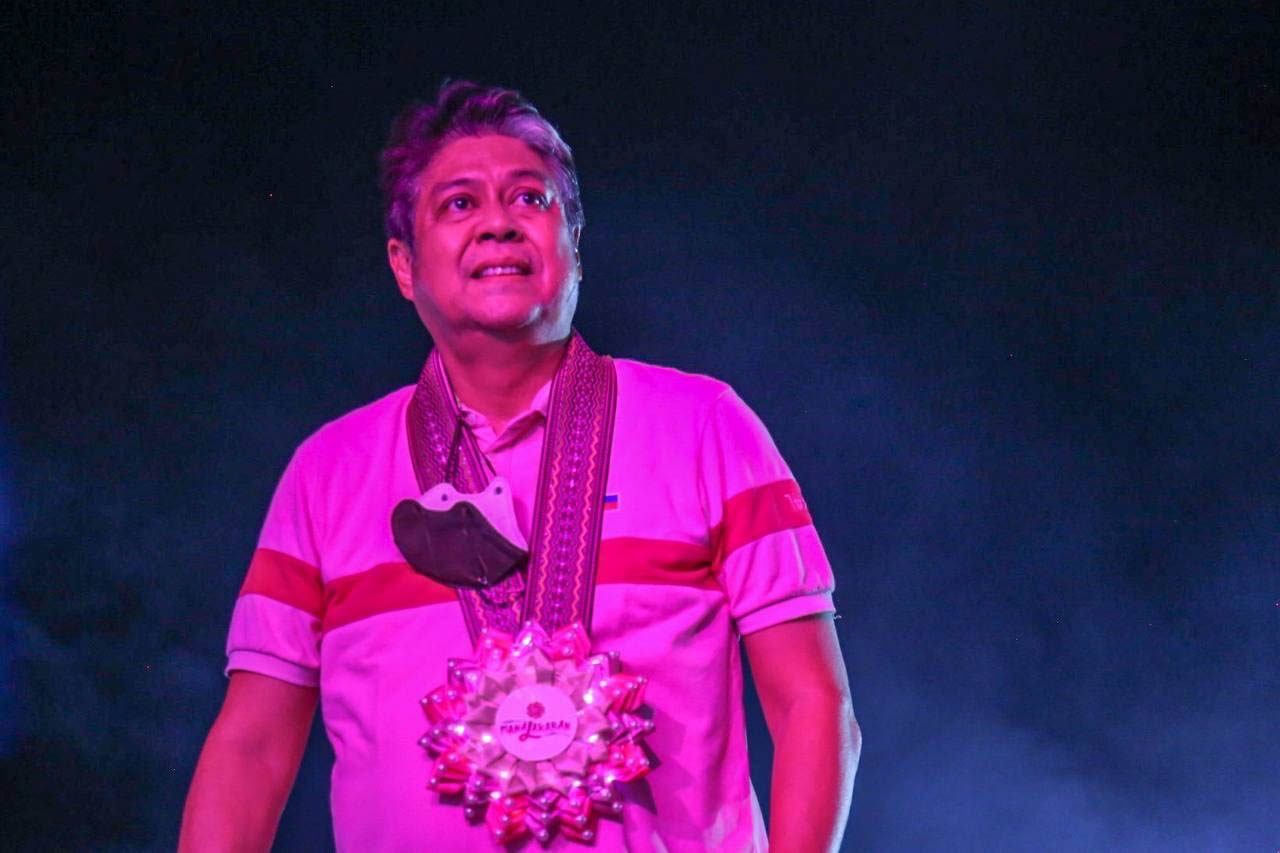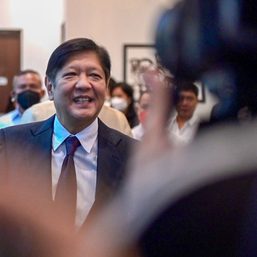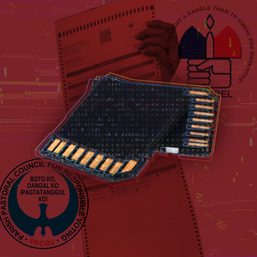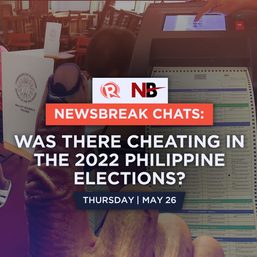SUMMARY
This is AI generated summarization, which may have errors. For context, always refer to the full article.

MANILA, Philippines – Former senator Francis “Kiko” Pangilinan, a vice presidential candidate in 2022, is urging Congress to take a closer look at allegations of fraud in the automated election system (AES) that continue to spread online a year after the polls.
“We urge the Senate committees on electoral reforms, finance, and the congressional oversight committee on automated elections to conduct public hearings as a means of ferreting out the truth regarding the allegations of fraud and seek clarification with the Comelec (Commission on Elections) on the matters raised by these concerned groups,” Pangilinan said in a statement on Tuesday, August 22.
“Finally, we urge the Comelec to answer the questions raised squarely so as to ensure that the public’s trust in our electoral processes, as a bulwark of democracy, remains undiminished,” added Pangilinan, who lost the vice presidential race in 2022 to then-Davao City mayor Sara Duterte.
Pangilinan’s statement stands out because he is the most high-profile opposition figure so far to not just acknowledge theories raised by IT experts led by former information and communications technology chief Eliseo Rio and collectively known as the “TNT Trio.” He also to join the group’s “call for truth and accountability.”
It came eight months after his standard-bearer, former vice president Leni Robredo, said her team did not find evidence of automated election cheating.
Pangilinan, however, underscored the importance of not jumping to conclusions.
“As staunch advocates of truth, freedom, and democracy, we stand alongside Namfrel (National Citizens’ Movement for Free Elections) officials who, while refraining from [making] premature conclusions, acknowledge the legitimate doubts and suspicions cast upon the electoral proceedings,” Pangilinan said.
“The absence of a clear and unequivocal response from the Comelec fuels a climate of mistrust. Missteps, inaccuracies, and opacity from Comelec officials further exacerbate this erosion of faith,” he added.
Fast transmission of results
In his press release, Pangilinan echoed a common sentiment online – how the Philippines, a country that grapples with slow internet, had an election where the votes came in fast.
However, watchdogs which have repeatedly monitored elections in the Philippines, such as Namfrel and the Parish Pastoral Counting for Responsible Voting (PPCRV), have said that the fast transmission of results, and projection of these votes into the transparency server in less than 10 minutes, were not out of the ordinary.
Rappler’s database shows the volume of results transmitted to the Comelec’s transparency server within the first hours after the precincts closed increased every election since 2010.
Arguments on the supposed constant vote ratio that was observed on election night can also be explained by mathematics, specifically the law of large numbers. It was also a phenomenon present even in past polls.
Other methods to check whether automated election irregularities took place did not yield anything that would confirm such.
PPCRV’s parallel count concluded that 98.6% of printed election returns matched with electronically transmitted results, while a random manual audit led by the Legal Network for Truthful Elections found that 99% of reviewed ballots were read accurately by the VCMs.

Use of private IP address
Pangilinan’s statement, however, came in the wake of Rio’s new argument: that the Comelec’s use of one private IP address for the count was a proof of poll rigging.
The Comelec disputed this, saying that, while the 20,300 modems had the same IP address, they all underwent a series of pre-election tests on accuracy and hardware acceptance.
The commission insisted the use of the same or different IP addresses had no impact on the accuracy of the polls, and is not required by law.
Namfrel officials, in a recent interview with Rappler’s John Nery, also said they had yet to see compelling evidence that there were irregularities in the transmission of results.
“Until the Comelec shows the actual networks, we don’t see any technical proof that fraud happened in the transmission side,” Namfrel national council member JR Contreras said during Rappler’s talk show In the Public Square on August 16.
Comparing the process to money remittance, Contreras explained: “I sent P1,000, and the other person received P1,000. Would it matter whoever sent it? The problem would be, if I sent P1,000 and the other person received P500. But where’s the proof of that?”

In a separate interview with Rappler, election lawyer Emil Marañon, who was part of Robredo’s legal team during her 2022 campaign, also said the TNT Trio’s claim of election fraud will all boil down to the question of whether there was vote-shaving or vote-padding.
“Was there even a single vote change? It’s so easy to believe these legal theories if you don’t understand the system. But there are safeguard mechanisms by which you can actually detect changes in the vote,” Marañon told Rappler on Tuesday. “Prove that there is a change in the numbers, because the essence of election fraud is to change the numbers, either you shave or pad the votes.”
“You complete your theory of fraud. You don’t stop midway by saying one IP address, and then you leave everyone hanging. So what?” he added.
Transparency
While Namfrel said it has yet to see compelling arguments regarding election fraud, it believes the Comelec has not been fully transparent.
The watchdog said the Comelec has yet to grant Namfrel’s request seeking multiple documentations in relation to how the vote-counting machine system hash code was built, since it noticed there had been discrepancy.
The group also took the position that what the Comelec released in March were not transmission logs, but reception logs, because of certain data that were misisng.
“If the public asks for it, the commission should release the data, without maybe an order from the court for them to release it, because it’s not a secret to begin with,” Namfrel chairman Lito Averia said.
Aside from these issues, watchdogs also lamented other election issues that damaged the election’s credibility, such as the observer blackout during the early days of ballot printing and SD cards configuration, delayed replacement of defective VCMs in some precincts, transmission difficulties in areas with weak mobile connection, and lack of training of some poll workers in resolving technical issues on election day.
Beyond the AES, watchdogs also zeroed in on the rampant vote-buying and disinformation tactics. – Rappler.com
Add a comment
How does this make you feel?









There are no comments yet. Add your comment to start the conversation.